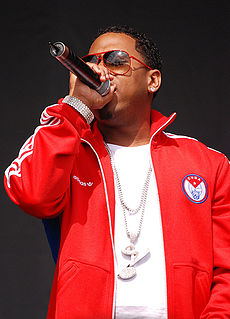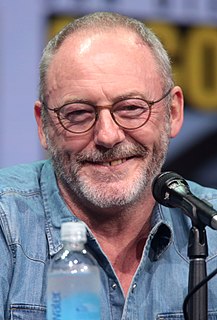A Quote by Michael Crichton
In any case, you read with exasperation or amusement the multiple errors in a story-and then turn the page to national or international affairs, and read with renewed interest as if the rest of the newspaper was somehow more accurate about far-off Palestine than it was about the story you just read. You turn the page, and forget what you know.
Related Quotes
No one reads to hear someone complain about the weather or how poorly their children are behaving. You have to give the readers a reason to turn the page. As a writer you have to invite someone to turn the page. And that is a skill you have to refine. That is why you have to read. You have to read to learn what it is that makes people turn the page.
Here's what I want from a book, what I demand, what I pray for when I take up a novel and begin to read the first sentence: I want everything and nothing less, the full measure of a writer's heart. I want a novel so poetic that I do not have to turn to the standby anthologies of poetry to satisfy that itch for music, for perfection and economy of phrasing, for exactness of tone. Then, too, I want a book so filled with story and character that I read page after page without thinking of food or drink because a writer has possessed me, crazed with an unappeasable thirst to know what happens next.
A book is something that young readers can experience on their own time. They decide when to turn the page. They'll put their arm right on the page so you can't turn it because they're not ready to go to the next page yet. They just want to look at it again, or they want to read the book over and over because they really enjoy setting the pace themselves.
You need to give the reader a reason to turn the page. In a diary, you are just yourself. You aren't trying to entertain. You aren't trying to get anyone to turn the page. I have over one hundred and fifty six volumes of my diary and I guarantee you that if you read them, you'd stop and never come back.
For a Nebraska kid in the late 1970s and early 1980s, Nebraska football was a quasi-religion, so I ran out to get The Omaha World-Herald every morning, salivating for the sports page. My dad, however, required that I read one front page story and one editorial before I was allowed to turn to the sports.
It's hard to tell if anyone's interested in reading a serialized story. But it's interesting to put in a cliffhanger each week. That was popular in old comic strips. They'd write a weekend story different from the daily strip. So people follow one story day to day, and a separate story on weekends. If you read them, you think "I'll read two more." Then you're like "I gotta find out!" And you read 500 more.
It was probably 10 at night when I started to read Donnie Darko. I get in bed and read the first page, and I go, "Hmmm. That's interesting." Second page, "Wow." By the fourth page, my heart started to beat, and I knew. It makes me cry, because I knew I had found a classic film. You just know when you get certain material.

































